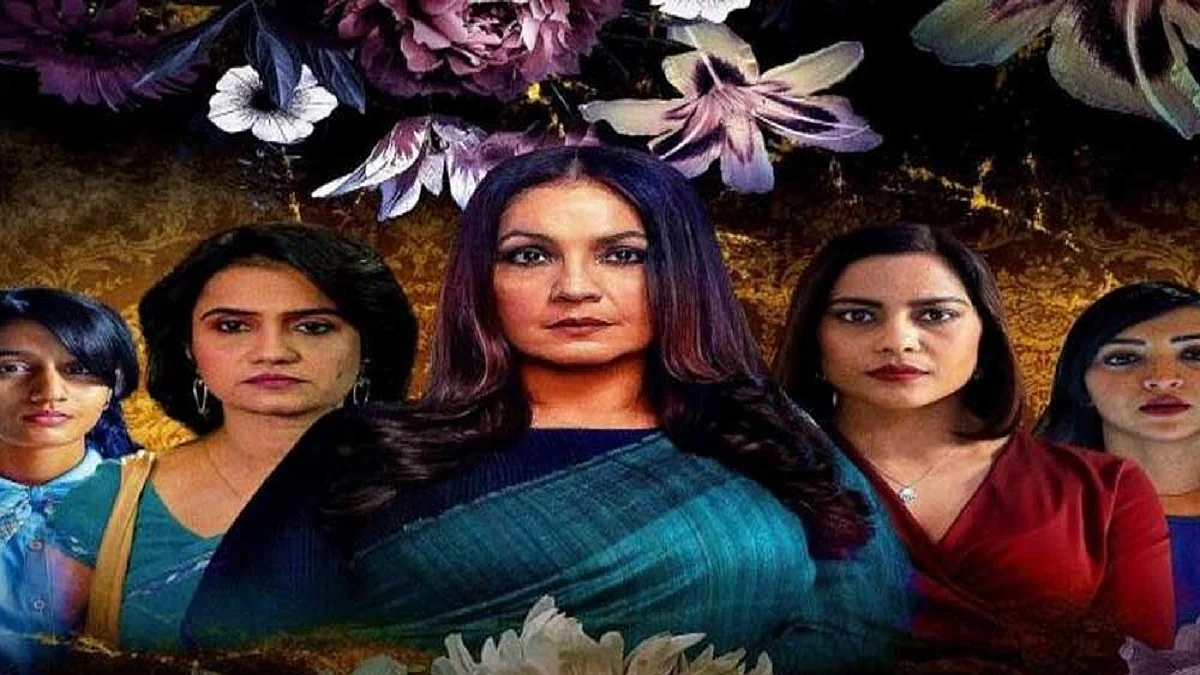Bombay Begums: Not quite a great sum of its brilliant parts
While it gets some of the micro elements well, the bigger picture is a bit of a let-down. It’s like some parts of the machine might be well-oiled but it is otherwise dysfunctional

At first glance there’s something promising about Bombay Begums. Not just the larger struggle for survival of its women protagonists but the banal, everyday issues. The experiences, however unsought, that seem to be engineered into their physical being. How often do we see a woman in a film or series trying hard to square up to menopausal hot flashes and incessant sweating, awkwardly visible on the blouse in the AC boardroom? Or a young girl dying to start menstruating, as though it’s all she needs to become well-endowed and desirable? When have we seen women on screen in a conversation with their bodies? When have we seen bodily functions portrayed with candour? When was it that we saw a woman wash her undergarments on screen, casually so?
Parsis, Hindus, Muslims, Marathis, Punjabis — there is a cross-section of religions and communities and their intermingling here that is so quintessentially Bombay. The kind that you don’t quite get to encounter as visibly in any other big Indian city. Filmmaker-creator Alankrita Shrivastava and director Bornila Chatterjee (the two direct three episodes each) provide a social bird’s eye-view of the city, with women at its core that, at times, can be refreshingly unexpected.
Women who are just as much nurturers as they destroy people with their killer instinct; they hire just as easily as they fire; they are as much homebodies as ambitious ladies of the world; as protective about their kids as they are ruthless when it comes to their competitors. They have an ugly side they don’t hide, however beautiful they may look to the world. They are out to exploit, even when getting exploited themselves. They give in to their desires and ambitions—sexual or professional—than brushing them under the carpet.
The focus is on five of them. CEO Rani (Pooja Bhatt) who has plans to turn her bank around, Fatima (Shahana Goswami) steadily on her way up in the office hierarchy, Ayesha (Plabita Borthakur) the small town girl with big city dreams, Shai (Aadhya Anand) a teenager missing her dead mother and finding it difficult to belong and Lily (Amruta Subhash) a bar dancer-turned-sex worker and single mom who wants her son to get the respect she has never been able to earn.
Men in their lives are confined to the margins. We find them making lemongrass tea at home or lagging behind professionally, what with the wife as the boss at work; being the inconsequential confidantes or stand-by lovers to fill in the sundry gaps in the lives of the ladies when required. Or typical misogynists, creatures of centuries of patriarchy, who refuse to accept a woman rising her way up to the top on her own steam and are willing to go to any lengths to stop her. Then there are those who dole out favours to women—at times not even that—while charging an immense amount back from them.
Shrivastava and Chatterjee get the beats right in the portrayal of sexual harassment at workplace. The rampant prevalence of the predatory behaviour, its acceptance—at times unquestioning, at others confused. We have women, at times, taking the onus of it on themselves and at others wondering how a man who has been an angel to them could possibly have been a demon to another woman, colluding with the man in belying another woman’s truth. It’s an experience many a woman would have gone through for real and a lot of us have had to confront directly in the wake of the #MeToo movement.
What makes the show watchable is that it has actresses who are capable of holding the viewers’ interest on their own, especially Pooja Bhatt in a welcome comeback, Shahana Goswami as nuanced as ever and Amruta Subhash who lends a lived-in, empathetic touch to an otherwise age-old character type and leaves us asking for more.
Having given all these brownie points to the film, there’s a larger issue I have with it. While it gets some of the micro elements well, the bigger picture is a bit of a let-down. It’s like some parts of the machine might be well-oiled but it is otherwise dysfunctional. The larger framing of the series gets predictable to the core, the treatment is soap opera kitsch, ham-fisted than nuanced, the persistent voiceover inane and the awkward English and the loud tone are grating.
More than anything else, it’s the same old template of two-four-five women’s stories criss-crossing with each other. Is there no other mould left to bring alive the female experience on screen? Are there other ways to explore female sexuality and desire than have the characters hold a drink in one hand and cigarette in another and make them indulge in automated sex?
Yes, these portrayals are indeed needed in a repressed and repressive society like ours. They have been disruptive in ways we urgently need to set the balance right. But from the clutter-breakers that they once were, they have turned into tired, unimaginative representations now. From breaking the chaste stereotypes of the past, have they led us to a point now of creating new clichés of uninhibitedness for the present?
Now that we have reached this point in the evolution of the heroine, where do we take her from here and how? Perhaps the second season of Bombay Begums will provide us those answers.
Follow us on: Facebook, Twitter, Google News, Instagram
Join our official telegram channel (@nationalherald) and stay updated with the latest headlines
